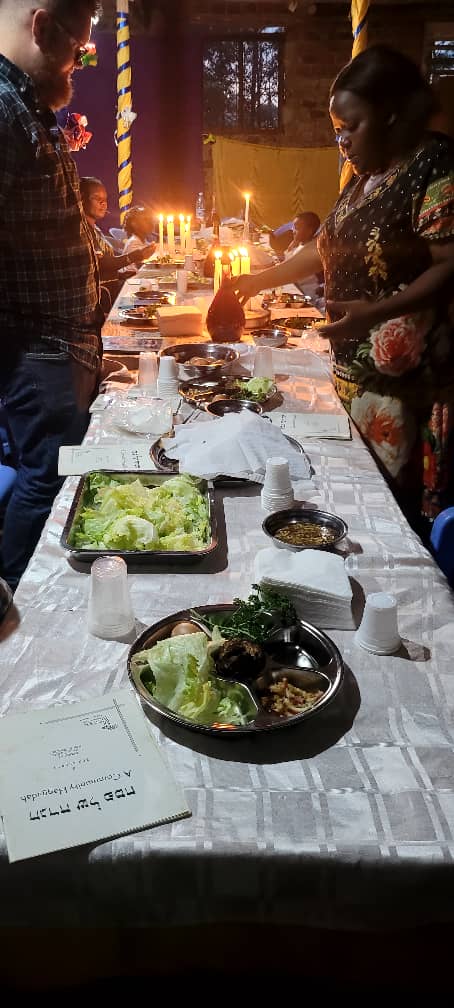Why Do We Count the Omer? A Sacred Journey from Pesach to Shavuot
As we joyously celebrated the Feast of Pesach (Passover), commemorating our miraculous redemption from Egyptian slavery, we stepped into a deeply spiritual and reflective period in the Jewish calendar — Sefirat HaOmer, or the Counting of the Omer. This sacred tradition began at the conclusion of the second Seder night, and from that moment, Jewish communities across the globe, including the vibrant Abayudaya synagogues in Uganda, began counting each day and week in anticipation of Shavuot.

Why Do We Count the Omer?
Counting the Omer is a biblical commandment, as written in Leviticus 23:15-16:
“And you shall count for yourselves from the day after the Shabbat—from the day when you bring the Omer of the wave offering—seven complete weeks. You shall count fifty days, until the day after the seventh week…”
Historically, the Omer was an offering of barley brought to the Temple in Jerusalem on the second day of Pesach. This count marked the agricultural transition from the barley harvest to the wheat harvest, culminating in the offering of two loaves of bread on Shavuot.
Spiritually, the Omer connects our journey from physical freedom at Pesach to spiritual elevation and receiving the Torah at Mount Sinai on Shavuot. Each day offers an opportunity for tikkun hamiddot — refining our character traits through introspection and growth.
A Time of Reflection and Unity in the Abayudaya Community
In Uganda, the Abayudaya Jewish community has fully embraced this sacred mitzvah. Synagogues in communities such as Nabugoye, Namutumba, Nasenyi, Apac, Kadama, Mukono, Putti , among others joined hands with global Jewry in counting the Omer. Despite being geographically distant from large Jewish centers, the Abayudaya demonstrate unwavering dedication and spiritual connection through this daily ritual.
Each evening, after sunset, families and congregants gather to recite the special blessing and declare the count of the day. It is not merely a ritual but a collective journey of spiritual growth that binds the community with Jews everywhere.

At Beit Shalom Synagogue in Kampala, the Omer count began with great enthusiasm. After the second Seder concluded, community members gathered including Marom Youths in unity to begin this sacred count. Under the guidance of their local leaders, a special learning session was held to explain the spiritual significance of each week’s sefirot — divine attributes that guide personal development.
In the days following, Beit Shalom Kampala and Mukono (TBM) have been using their digital platforms, including WhatsApp groups and social media, to share the daily Omer count and reflections, ensuring that even those unable to attend physically remain part of the mitzvah. This creative approach mirrors global trends in digital Jewish engagement and showcases the adaptability of the Ugandan Jewish community.
Conclusion
Counting the Omer is more than just a countdown; it is a count-up toward purpose, revelation, and transformation. It links our past redemption with our future responsibility — to receive and live by the Torah. The participation of the Abayudaya synagogues reflects the living spirit of Judaism in Uganda and their unity with the global Jewish family.
